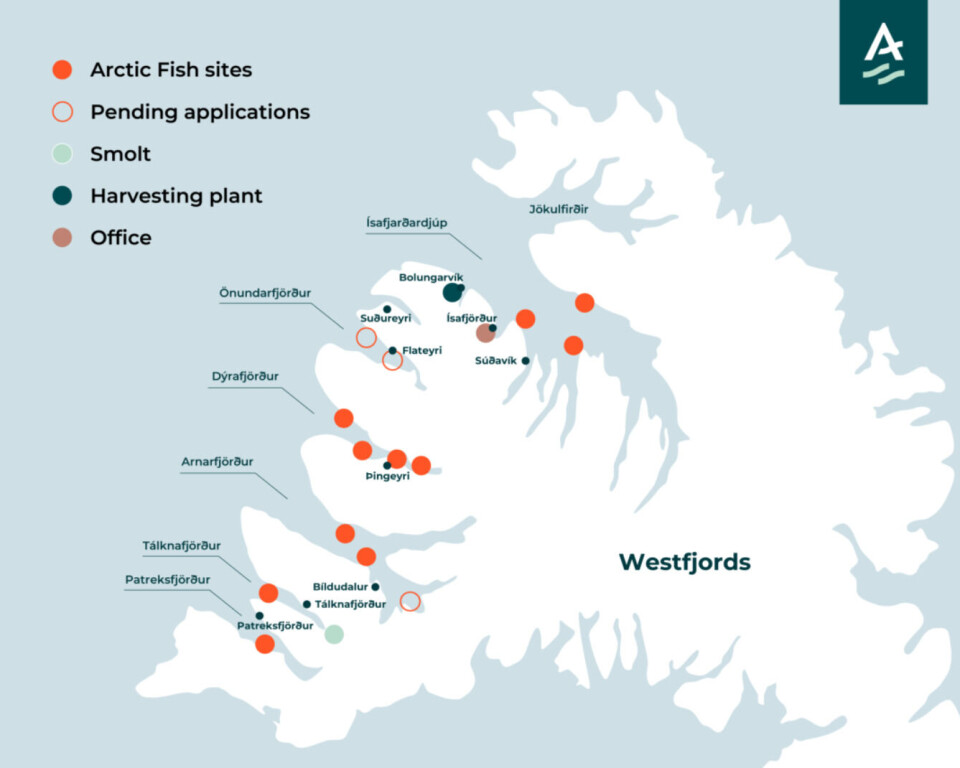
Appeal board puts the brakes on new farms in Icelandic fjord
Icelandic salmon farmers Arnarlax and Arctic Fish have had licences for planned farms in Ísafjarðardjúp revoked by the Environmental and Natural Resources Board of Appeal (UUA).
The UUA ruled that the Icelandic Food and Veterinary Authority (MAST) did not provide a comprehensive, weighted assessment of the potential increased risk of the spread of fish diseases and parasites before issuing a licence to Arnarlax for farming of 10,000 tonnes maximum allowed biomass of sterile (triploid) salmon in the fjord. As a consequence, the licence, which was originally awarded on 14 June 2024, has been revoked. The UUA also addressed the issue of maritime safety.
“This is unfortunate but will not affect our long-term guidance for production of fertile salmon on current licences. We are now going over the ruling and will work with MAST on the next steps,” said chief executive Bjørn Hembre.
Necessary precondition
According to the ruling, such assessment of potential risk is a necessary precondition for licences in areas where the distance between fish farming sites is less than 5 km. The appeal board also addressed maritime safety issues concerning one of the three sites. Arnarlax said it will work with authorities and MAST on these matters and perform the necessary assessment in order for the licence to be reissued.
Arnarlax holding company Icelandic Salmon, which is majority owned by the world’s second largest Artlantic salmon farmer, SalMar, pointed out that no fish farming operations have started in Ísafjarðardjúp and therefore, the ruling will have no effect on current operations or guidance.
Arctic Fish
Meanwhile, Arctic Fish announced that the UUA had annulled portions of its licence for the Kirkjusund and Arnarnes sites in Ísafjarðardjúp and instructed MAST to conduct further review.
“These two sites, which have never been operational, will not impact our current production capacity and forecast,” said Arctic Fish, which is majority owned by the world’s biggest Atlantic salmon farmer, Mowi.
Arctic Sea Farm received a licence for a maximum allowed biomass (MAB) of 8,000 tonnes in Isafjardardjup in February. The MAB comprised 5,200 tonnes for Atlantic salmon and 2,800 tonnes for trout. The licence replaced an existing licence held for 5,300 tonnes of trout.
Green light in other fjords
The UUA rejected complaints regarding the renewal of Arctic Fish’s operational and environmental licences in Patreksfjörður and Tálknafjörður, confirming the continuation of activities as planned.
“These rulings ensure that Arctic Fish’s production capacity remains unchanged, allowing us to confidently progress towards our target of 25,000 tonnes by 2029.
“We view these resolutions as positive steps that provide clarity and enable us to continue our growth with certainty,” said chief executive Stein Ove Tveiten.
























































